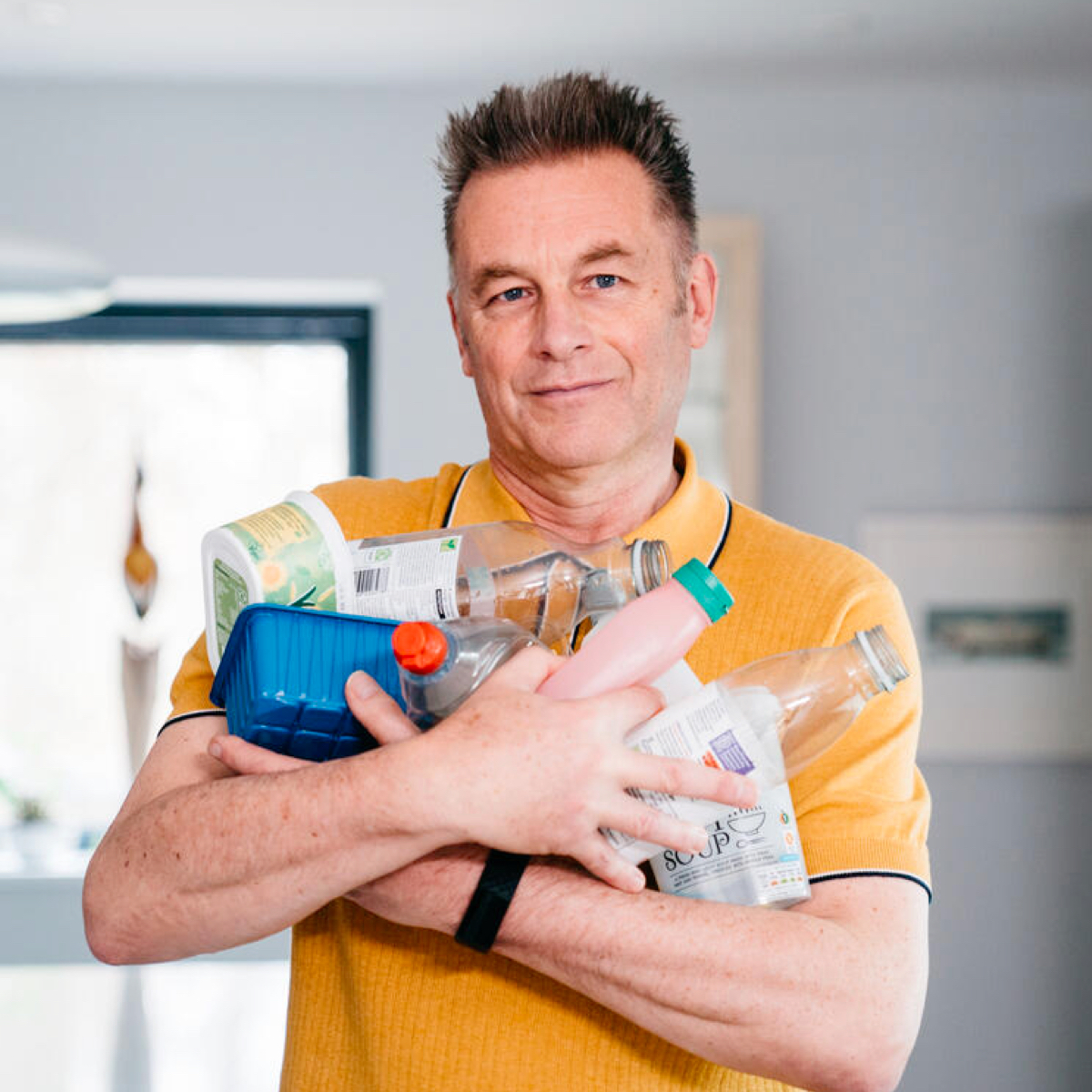Dorset households to count a week’s plastic waste in national survey

Households across Dorset have committed to counting a week’s worth of their plastic waste as part of the UK’s largest waste survey.
Starting next week, The Big Plastic Count, organised by Greenpeace UK and Everyday Plastic, is a national survey taking place from March 11 to 17.
It will give an opportunity for residents in Dorset and the wider region to gather vital evidence about the extent of the UK’s plastic problem.
Participants are encouraged to sign up by March 11 to receive all the materials needed.
Chris Packham, the wildlife TV presenter and conservationist, pictured above, is among those signing up already.
He said: “The natural world can’t cope with all our plastic rubbish.
“We’ve been calling for action on plastic for years, but the government hasn’t listened.
“That’s why this year, The Big Plastic Count is gathering even more evidence to push for plastic action in the UK and also globally, in a new UN Global Plastics Treaty focused on reducing plastic production.”
Nationwide, across all 650 parliamentary constituencies, over 80,000 participants have already signed up for The Big Plastic Count 2024, including more than 10,000 school classes.
The national plastic-counting campaign is open to individuals, households, schools, community groups and businesses.
Edd Moore, a teacher at Damers First School in Dorset, said: “Living in Dorset, I’ve seen the impacts of plastic pollution on our beaches and areas of outstanding natural beauty.
“The Big Plastic Count shows how much plastic packaging we use and explains the impact on our national and global plastic problem.
“Our school has been inspired to take part and use our fantastic resources to teach the children all about global plastic pollution and consumer choices.
“We’re learning that no matter how big or small we are, we can all make choices to reduce the plastic we use ourselves and we can also add our voices to calls for the government and companies to cut plastic packaging.”
Chloë Scrivener, from Wimborne, said: “I resist buying plastic on every occasion I can.
“Before it was possible to take crisps packets to the supermarket, or return my soft plastics in my fruit and veg box, I started to keep the plastic in my shed!
“I ended up with four huge bags of the stuff. It made me feel sick.”
“Last year I took part in The Big Plastic Count, and I felt spurred on to continue to do what I could, but also shocked by the feedback I had received.”

Laura Burley, Project Lead, The Big Plastic Count, Greenpeace UK, said: “Counting your plastic is as easy as 1, 2, 3.
“It only takes about 5 minutes a day.
“The UK government still hasn’t set a legally binding plastic reduction target so help us to gather the proof we need so UK politicians have no excuse not to act on plastic waste at home and overseas.”
Almost a quarter of a million people participated in The Big Plastic Count in 2022, revealing:
- UK households throw nearly two billion pieces of plastic packaging away weekly.
- Just 12% is recycled in the UK, with the rest being burned, shipped abroad, or languished in landfills.
- 83% of plastic recorded was from food and drink packaging waste, the most common item being fruit and vegetable packaging.
Greenpeace and Everyday Plastic are now calling on the government to:
- Reduce plastic production by at least 75% by 2040 and speed up the introduction of innovative reuse and refill models.
- Completely ban all plastic waste exports by 2027 at the latest.
- Immediately implement an all-in Deposit Return Scheme (DRS) and Extended Producer Responsibility (EPR) requirements for recycling and reuse.
- End approvals for new incineration facilities.
Everyday Plastic founder Daniel Webb collected every piece of his plastic waste for a whole year and developed a unique methodology alongside a scientific researcher to calculate his plastic footprint.
Now, The Big Plastic Count offers the public the same chance to discover what happens to their plastic waste once they throw it away.
- Sign up for The Big Plastic Count 2024 here.
Share us with your friends on social media, and have a listen to Bournemouth One online and on DAB for all your local news, traffic, jobs, weather, coastal info and more.
Register below for free regular updates via email.

